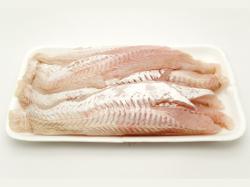Seafood Fraud: Many Fish Mislabeled In SoCal
June 1, 2012 | 1 min to read

When customers buy fish for the grill or celebrate the unofficial start of summer with sushi, many of them won’t get what they think they’re purchasing if “seafood fraud” is as rampant as a recent study suggests.
More than half of the fish tested in Southern California by Oceana — a large international ocean advocacy group — were mislabeled, including virtually all of the sushi and “red snapper.”
Most consumers likely will never know or care about mistakes or dishonest tactics in the fish business. But for some, inaccurate labels create health concerns and limit their ability to select seafood based on where it was caught, a tenet of the “eat local” movement. Mislabeled seafood also can undermine restoration efforts when vulnerable species replace healthy stocks, and cheat consumers by setting premium prices for lower-quality products.
Proposed state legislation seeks to improve consumer access to information by increasing labeling requirements for large restaurant chains to include more information about food harvested from the ocean. And agencies in Los Angeles County are stepping up investigations of mislabeling in the wake of the Oceana assessment.
To read the rest of the story, please go to: San Diego Union-Tribune
